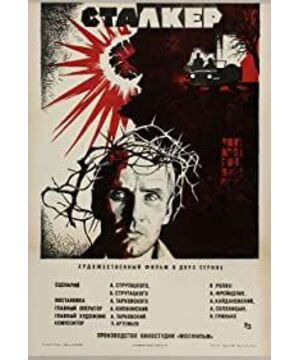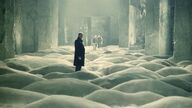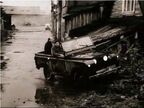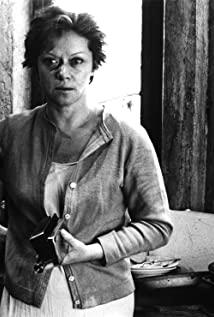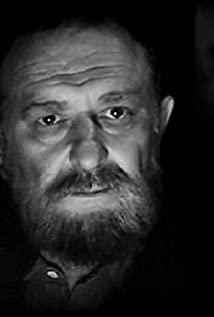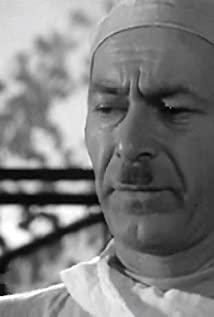To understand Tarkovsky and his film, the first thing we need to understand is the Russian Orthodox beliefs. Just as the Chinese film title has some coincidence hints in the pronunciation, only when we understand "stalker" as " "Pious" is the closest to Tarkovsky's author's perspective.
"Stalker" is not easy to understand, and the magnificence and depth of the theme itself is the main difficulty and obscurity. However, the most concentrated discourse conflict in this film has a long-term cultural background, so that when we understand it, we can find a corresponding intertextual object in a religious-philosophical context, such as "The Brothers Karamazov" . I don't know whether it was the unintentional act of the original author of "Roadside Picnic" or the deliberate action of the "Stalker" creative team. The three main characters of the film seem to be in harmony with the three Karamazov brothers: "The writer" Corresponds to the eldest brother Mijia, "Scientist" corresponds to the second brother Ivan, and "Stalker" corresponds to the third brother Alyosha.
The "writer" in the film and Mijia in the book both use "sensibility" as the core representation. Furthermore, the words and actions of the "writer" in the film seem to show a Nietzsche-style "superman" image: he is indulged in sensory activities, and does not forget female sex and wine in the process of sneaking; he admires or believes in coercive power , Carrying a pistol with you is a proof. More importantly, he is a "writer", that is, an art creator, pursuing inspiration, the highest form of life will.
Coincidentally, both scientists and Ivan use "rationality" as their core representation. The identity of a scientist originally points directly to rationality, and in the movie, the "scientist" also shows its own unique personality and behavioral characteristics. It is rigorous, eclectic and obeys the rules. The forgotten water bottle). Although his intelligence is high, he appears a little hypocritical in virtue. In order to achieve the purpose of blowing up the "zone", he even lied to the stalker.
Perceptually passionate "writers" and rational and cold "scientists", although their core representations are different, they stand in the same camp on an ultimate issue, that is, they do not believe in "zones." As mentioned above, only when the stalker is the devout Alyosha, the divinity and religious imagery revealed everywhere in this film can be put into the most appropriate context. Therefore, it is not so much the "Stalker "Is a sci-fi movie, rather it is a religious movie, "zone" means "god", sneaking in the "zone" means wandering into the world on the other side. In short, the fundamental consistency between "writers" and "scientists" is actually that they are no longer devout believers, but to some extent are close to nihilism.
Ever since, the biggest conflict in the theme of this film is whether it is faith or not. Stalkers who are devouts undoubtedly represent the subject of faith, just like Alyosha in "Brother Karamazov", love and hope are always placed in their hearts. However, stalkers also have their difficulties. As a guide to lead people into the world beyond, they cannot enter the "room" to pray for the realization of their wishes, because they cannot have "selfishness", which makes sneaking The person is more close to the identity of the clergy (that is, some kind of "ferryman"). At the same time, the stalkers have a very difficult life in the world outside the "zone". In addition to suffering physical and mental suffering, they also face the situation that the "zone" is forcibly blocked by the army. This may constitute an insinuation of the social reality of the Soviet Union. metaphor.
In short, the three roles as the three symbols bear different value meanings respectively. They constitute three kinds of discourses. They deal with the motif of faith in the process of sneaking, and finally fight at the door of the "room". A realistic situation is that even in the "zone" of the other world, the stalker with "belief" as the core representation is still no match for "writers" and "scientists". Weeping and pleading. This is also a metaphor for pure religion. After all, faith in the true sense relies on conversion at the spiritual level, not coercion at the power level. In the end, the stalker moved the hearts of "writers" and "scientists" through this "weak" way of power, and preserved the "room" and "zone", the only remaining space for belief in the world.
However, "rooms" and "zones" are just a kind of subjective beliefs lacking certainty, or do they really represent the objective divinity of the other side of the world? Tarkovsky did not throw this question to us, because he already gave his own answer in the film. What needs to be understood is that Tarkovsky himself believes in the Orthodox Church, which makes his religious attitude very different from Bergman's Protestant attitude. The sense of religion is much more stable in the former. Therefore, Tasman made a positive statement of the objective existence of divinity.
For example, from the beginning, he used the strong contrast of tones to symbolize the essential difference between the two worlds, which means that the other world in the "zone" is not the result of pure imagination.
Secondly, one of the main arguments for ordinary people to question religion is the lack of so-called "miracles": because there is no manifestation of any miracle, there is no god. But Tarkovsky not only does not resist the confirmation of religious miracles, but also deliberately displays them. This kind of display is suggestive at first. In the tunnel, the stalker listens to the voice of the "zone" to let the "writer" explore the way, because the writer is "frank", and from the follow-up plot, it is compared with the "scientist" to hide the bomb The hypocrisy of the "writer" is indeed incredibly frank. Therefore, this kind of insight and foresight of the human nature of the two is already a kind of "miracle."
There is also a more direct miracle: at the end of the film, the daughter of the stalker can move the cup on the table in space. It is worth noting that the passing sound of the train and the violent shaking of the desktop appearing in this passage. What is the significance of this treatment? What is clear is that since the passage has returned to the true color tone of the other shore world, this must be a scene full of divinity, and the cup is indeed "miraculously" pushed by the girl. But Tasmanian seemed to have left a thought-provoking irony to the audience after that, that is, if we as unbelievers really witnessed such incidents, I am afraid that we will only take for granted the movement of the cup and the passing of the train. The vibrations are connected, so that all of this is treated as a mechanical causal effect, without any miracles in the slightest. This is probably Tarkovsky’s ideological inquiry, torture and even refutation of modern people, especially nonbelievers: it’s not that miracles don’t exist, but that we haven’t thought about and discovered them seriously (with eyes but no knowledge of Tarzan) .
In short, we can all feel Tarkovsky's certain loyalty to the faith from the above several paragraphs of processing. In addition, this can also be felt from several other religious passages in this film:
Since in the Christian faith, the world on the other side as the essence is more "real" than the world on the side as the phenomenon, in this film, the color of the world on this side and the dreamland of the stalker’s dream is the same dark yellow. In other words, the world on this side is like Dreams are like bubbles.
When they reached the end of the tunnel and opened the hatch, the "writer" and "scientist" went down and then went up through the pool one by one. This scene is a metaphor for "baptism".
In a series of passages when the three people arrive at the door of the "room", there is one shot that has not been given, that is, the shot from the line of sight of the three people and looking into the "room", which seems to imply the invisibleness of "God" sex.
Finally, don't forget the direct shots given many times in the film. When the characters in the film face the camera and state their words, it is by no means a monologue but a dialogue. The film seeks to communicate with the audience. Because Tarkovsky is like Dostoyevsky and any great thinker, they are all facing the most universal human propositions, and they are all seeking to dialogue and talk with everyone about the common situation of existence. Don't forget that poetry, poetry and religion are actually the same thing in many cases.
"Summer is gone and never returns
The high sun is still there, but the heat is still losing.
Things will pass, like five-petaled leaves
I fell my palms, but the leaf petals were still deficient.
The evil is not exhausted, the good is not lost
The light shines on the world, but the light still loses.
Responsible for strength, calm and open face
I should be fortunate, but fortunate to still suffer.
No leaves withered, no branches broken; the day is clear, like colored glaze
It's a pity that the day is still losing. "
——Father of Andrei Tarkovsky
View more about Stalker reviews


